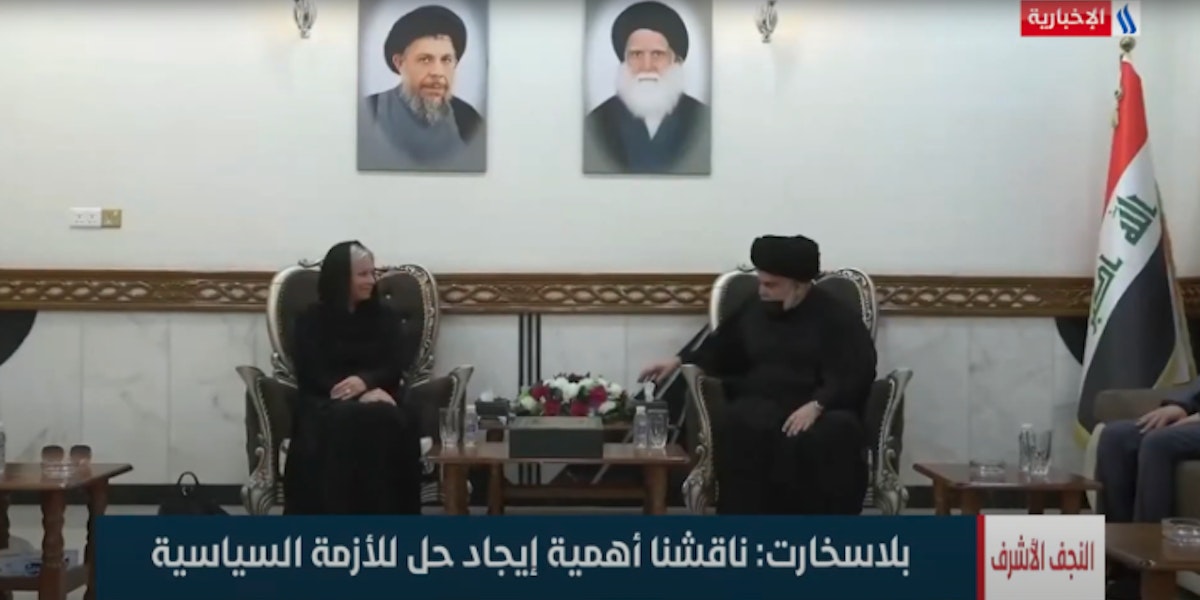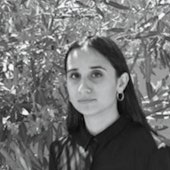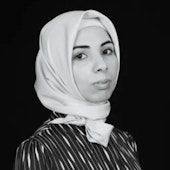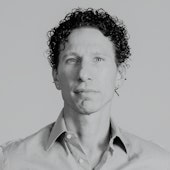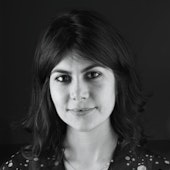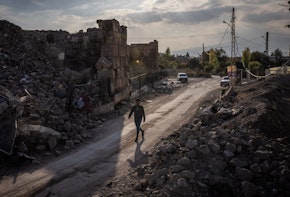Iraq’s political crisis escalated to a new, more dangerous level in July, with the country’s fragile democratic system at stake in a power struggle between two rival political camps. The cleric Muqtada al–Sadr was unable to form a majority government after winning the October 2021 elections. Last month he pulled his representatives out of parliament and has now orchestrated a sit-in that effectively blocks anyone else from forming a new government either. The power struggle carries immediate risks of factional violence in Iraq; over the long term, it imperils the rudiments of power-sharing and democratic institutions.
Century International talked about the crisis with some of the researchers in its Shia Politics Working Group, which has been studying the evolution of Islamist politics in Iraq in the period since 2003.
Thanassis Cambanis: How significant is the current political crisis? Is there a chance that the current, broken political system will change into something more flexible or representative, or will we be stuck with another iteration of the current setup, where every faction gets a share of government power and the attendant spoils of corruption?
Marsin Alshamary: Although Iraq is no stranger to political instability, this is an important moment in post-2003 history as this is the first time a Shia member of the political elite has tried to attack the political system that has produced and sustained him. Dialogue and resolution seem to be prevailing and will likely produce little substantial change, as most signs point to early elections again. Ironically, a call for early elections once more might anger the Iraqi population to the extent of galvanizing organic mass protests once more.
Taif Alkhudary: I agree with Marsin that it is increasingly looking like new elections are the most likely outcome of the current political impasse in Iraq, something that many of the big losers of the 2021 elections have called for from the beginning of negotiations. However, I think that the important question here is what will voter turnout look like in the next round of elections given that during the 2021 elections it was the lowest it has ever been, at just 43 percent. Will people go out and vote given that the political elite has proven once again that it has no interest in solving the big problems currently facing ordinary Iraqis? To the contrary, the elite continues to use the political system as a means of bolstering its own power. What will this mean for the legitimacy and the sustainability of the political system going forward?
Old Rules in Flux
Sajad Jiyad: This is the most serious political crisis Iraq has faced in its post-2003 order. The failure to form a government in the more than ten months since the last elections had already led to the longest-ever wait after elections. Now the party that won the largest number of seats is threatening to upend the system, make changes to the constitution, and call for new elections. While real and permanent reforms may not be immediately forthcoming, the most egregious form of confessional power sharing could be over and instead new parties could emerge and the old, corrupt politicians and parties could be forced out eventually.
Maria Fantappie: What we are witnessing is a crisis of consensus-based intra-Shia decision-making. Decision by consensus has been over the years an enduring unwritten rule of Iraq’s political system. While not mandated by the constitution, it has been a robust practice since 2003 ensuring the redistribution of senior state positions among dominant parties claiming to represent Iraq’s ethnic and religious groups. Shia groups have always selected a prime minister by consensus, whether united under the same political bloc, like in the first parliamentary elections of 2005, or competing in opposite blocs, as in 2018. Shia groups agreed on a candidate for prime minister, while Kurdish groups selected a candidate for a president and the Sunni groups nominated a speaker of parliament.
Things have changed. Decision by consensus is harder to achieve across the political spectrum. Ambitious players aim at leadership within their own community. Speaker of Parliament Mohammed al-Halbousi, reelected to a second term in January, established himself as the ultimate Sunni leader. The Barzani-led Kurdistan Democratic Party has a similar goal of establishing dominance in Kurdish politics. The Sadrists want to achieve the status of primus inter pares among Shia groups. Shia consensus matters more than that of the other groups because the Shia decide the most powerful post, the prime minister. Hence, if Shia groups change their approach to consensus, then it becomes likely that decision-making practices will change for everyone else, rewriting the rules of government formation.
Crisis without Progress
Thanassis: What is the likely outcome in the short-term? Will Sadr emerge as a victor from the upheaval?
Marsin: The question here is what does victory even look like for Sadr? Is it to change the Iraqi political system, or is it to appear the most powerful Shia actor in Iraq? In the short term, Sadr is looking to save face by enacting so-called revolutionary change, but the only revolutionary change that he can afford is early elections.
Taif: The current political crisis goes back to calls by Sadr to form a majority government. When he was unable to form a government decisively under his control—blocked by members of the Shia Coordination Framework and most notably by former prime minister Nuri al-Maliki—he decided to withdraw his seventy-three representatives from parliament. Now that a consensus government has once again been agreed upon and a prime minister nominated, known to be loyal to Maliki, Sadr has decided to block this process through protests. Victory for Sadr would mean leveraging his power within the so-called Shia House to increase his share of the pie for example, through being allowed to choose the next prime minister or placing more civil servants loyal to him into key positions within the bureaucracy. For Sadr, the idea of majority government has always only ever been a way of strengthening his hand, whether through appeals to the rhetoric of the October protests by insisting on reform or a means through which to exclude his rival Maliki from government.
For Sadr, the idea of majority government has always only ever been a way of strengthening his hand.
Sajad: Sadr sees this as an opportunity to permanently defeat his rivals among the Shia parties, so that he remains, or emerges, as the sole political representative of Iraq’s Shia population. Preventing his opponents from forming a government would be a victory, as would forcing new elections on favorable terms to his party, thereby assuring him of winning elections again. While it is difficult to predict what happens in the next few weeks and months, it would be a surprise if anything but a compromise is forged, something that allows both sides to save face and claim a partial victory. That’s because the alternatives are likely to involve violence and no side seems keen on that.
Maria: The nine-month political stalemate and the current crisis are a testimony to the unwillingness of Shia forces to compromise and work by consensus. The Coordination Framework (CF), the competing faction led by Maliki, showed its weight by preventing Sadr and its tripartite alliance from forming a majority government. Sadr responded by preventing the election of the CF’s proposed candidate for prime minister, Mohamed Shia al-Sudani. Both sides have flexed their muscles, mobilizing their assets across the state and society to sabotage the other side. No real victor has emerged. To the contrary, the crisis has wasted time while Iraq faces enormous governance and climate challenges—and increasingly, is exposed to regional interference. Two possible outcomes: the disputing sides might reach an agreement through political negotiations, which might depart from the established practice of decision-by consensus—or a continued stalemate that can degenerate into violence at any instant.
Thwarted Protests
Thanassis: The Tishreen movement that coalesced from the October 2019 protests won a small bloc in parliament and has begun to articulate some alternatives to the predominantly sectarian and corruption-driven factional politics of Sadr, Maliki, and their competitors. What role can this inchoate protest movement play in changing the political system? Can a new form of politics emerge—or does the current confrontation embed violence and force more deeply than ever as the way to resolve Iraqi political disputes?
Marsin: Whatever change the Tishreen movement might have ushered in is being undone by Muqtada Al-Sadr. First, by calling for early elections again, Sadr has challenged the legitimacy of the current parliament in which protest-based parties have won a sizable number of seats. Second, he has reduced the time frame in which these parties can demonstrate their skills in parliament to their constituents and has ensured that the voter turnout of their base—under another early election—will be even lower than the 2021 election. Moreover, as these parties have largely acquiesced to the status quo (with some voicing a desire for dialogue and others agreeing with the changes called for by Sadr), they will lose legitimacy in the eyes of the Iraqi public. However, Sadr is counting not on the reformists of Tishreen who have participated in elections but in the revolutionaries who called for outright regime change. He is hoping that the framing of his message as nationalisic, anti-sectarian, and anti-corruption will appeal to the same popular base that kept Tishreen going for months, but he has no intention of giving them a leadership position, only co-opting their public legitimacy. Tishreen parties should take note of the experience of the Iraqi Communist Party, which partnered with Sadr only to be abandoned.
Whatever change the Tishreen movement might have ushered in is being undone by Muqtada Al-Sadr.
Taif: Sadr’s initial calls to form a majority government proved popular with activists who believed that it would improve accountability within the government and said that they were less likely to join protests if this was realized. However, other protesters remained cynical and have not forgotten that Sadr was responsible for the demobilization of both the 2015 and the 2019 protests. In light of this, it is possible that new protests will emerge. However, it is unlikely that they will be on the scale of the 2019 uprising given the level of violence faced by protesters during and since the demonstrations.
In terms of the parties that emerged out of the protest movement, it is unlikely that they will play a large role in changing the political system given that the system itself has already worked to fragment them, through violence and cooptation and through limiting their political imaginary, leaving them without any sizable representation in parliament. Moreover, should new elections be held, their support base is likely to shrink further because they have not been given enough time to prove what they can do in parliament. Other grassroots parties that decided to boycott elections will also find it difficult to organize themselves and complete the proceedings necessary in order to participate in the elections, given that they have been counting on running during the next scheduled electoral cycle in four years’ time. With this in mind, I wonder whether independent candidates will do even better in any new elections that might be held as many of those who were once part of the grassroots parties that emerged from the protests are now independent MPs in parliament. Other independent MPs, such as Bassem Khashan, have been among the most vocal and successful opposition voices in the post-2021 parliament.
Maria: The pact forged in 2003 among the opponents of Saddam Hussein who suddenly rose to power is now in crisis. The pact no longer can govern relations between political leadership and society relations, as the rise of the Tishreen protest movement glaringly illustrates. Nor can it govern relations among the various elements of the leadership, as the current crisis indicates. For a new form of politics to emerge it will not suffice to replace one form of flawed consensus decision-making with another, as Sadr and his allies tried and failed to do over the last year. The existing formula requires each community—Sunni, Kurdish, and Shia—to reach a consensus around one leader. Over the last year, Sadr tried to force a majority government into being through an alliance of top leaders from each community—Sadr representing the Shia, the KDP representing the Kurds, and Halbousi the Sunni. But that so-called tripartite alliance was not strong enough to muster a two-thirds majority in parliament and choose a new president and prime minister. A reboot of Iraq’s system requires Iraqi leaders and their constituents to rethink their entire relationship and move past patterns of co-optation and repression inherited from the previous regime. That is the lesson of the Tishreen movement.
Risk of Violence
Sajad: This is part of the gradual change of politics that has been underway since 2015, something that will take a generation to be fully realized. The current democratic system has been captured by corrupt, sectarian parties and serves their interests above all; it will only come to an end when it exhausts resources and patronage. The question is will it end in a progressive manner or a violent rejection? The Tishreen protest movement encouraged people to voice their rejection and the parties do not seem to have taken heed, so new movements will emerge that pick up from where Tishreen left off and apply further pressure for change and reform.
The current democratic system has been captured by corrupt, sectarian parties and serves their interests above all; it will only come to an end when it exhausts resources and patronage.
Thanassi: I’m afraid that this dispute institutionalizes violent competition as the sole method of sorting out power in Iraq’s political system. Iraq is an oddity among Arab states, in a largely positive way. It is a pluralistic, multi-sectarian and multi-ethnic republic. Since 2005, Iraq has relied primarily on elections to determine the relative share of power of the country’s political factions, even as it has developed an unhealthy power-sharing system that includes losers along with winners in the government, so that there is no opposition and no one excluded from the spoils system. Sadr wanted to break that formula, but not in service of building democratic institutions. It turned out not to matter how Iraqis voted in October 2021; vote tallies, parliamentary blocs, even political negotiations between the competing factions did not suffice to form a new government. Ultimately, only a violent confrontation will resolve the measuring contest between the factions to determine their allotment of national power. Negotiations by force between armed factions are effectively replacing elections as the default method of divvying up political power—a corrosive shift that threatens Iraq’s status as a democracy, albeit a flawed and fragile one.
Do you see more confrontation and violence between the Sadrists and the Coordination Framework? What could force a compromise?
Marsin: Thus far, it appears that the CF wants to avoid violence and confrontation. Individual members of the CF have voiced a desire for dialogue—including former Prime Minister Haider Al-Abadi and Badr Organization leader Hadi Al-Ameri. There was also news that Qais Al-Khazali, leader of Asaib Ahl al-Haq, pushed for the de-escalation of counter protests, even though it was thought that he preferred a confrontational approach. The concern about violence breaking out is not always a concern about the intentional instigation of violence by the political elite, as much as it is about the political elite creating opportunities for violence to break out accidentally or doing little to push back against it once it does. This is always a concern in Iraq, given how armed everyone here is.
Sajad: While both sides repeatedly state they want to avoid escalation and any possible violence, it does remain a not so insignificant possibility. The more the deadlock drags on and the more heated the dispute becomes, the less likely a compromise emerges. External actors are unlikely to be able to broker a solution, but if the Sadrists and CF are not in direct negotiations with each other then how will a deal be reached? As the major issue is essentially an intra-Shia dispute, one possibility is for both sides to approach Grand Ayatollah Ali Sistani, whose judgment would be final and accepted by all. Thus far, however, it seems he is not willing to intervene preemptively and the situation is not yet desperate enough for both sides to resort to his mediation.
Leaked recordings of Maliki appearing eager for an intra-Shia civil war are an interesting sign that times might be changing; Shia politics are more fractious, no longer the exclusive domain of Iran, and differences are more difficult to resolve.
Maria: Intra-Shia tensions have always existed but Shia leaders in the past refrained from speaking of them overtly. Back in 2007, the Badr Corps, wearing official police uniforms, cleared the street of Sadr’s militias. In 2008, Maliki deployed the Iraqi Army to fight Sadr’s militias, and framed the conflict as a fight between the state against outlaws. In 2016, Sadrists mobilized street protesters against a government led by a Dawa Party member, framing the power struggle as a demonstration calling for reform. In other words, intra-Shia confrontation has unfolded under many guises—state against paramilitaries; protesters against the state; and paramilitaries against the government—but never as overtly intra-Shia strife. Leaked recordings of Maliki appearing eager for an intra-Shia civil war are an interesting sign that times might be changing; Shia politics are more fractious, no longer the exclusive domain of Iran, and differences are more difficult to resolve. Dissent surfaces explicitly and threats of armed confrontation loom closer than ever. As the Shia consensus breaks, we enter an uncharted phase of Iraq’s contemporary political history. The Shia clerical leadership in Najaf, which has often served as the guide and mediator of Shia politics, may yet play an important role in shaping the outcome of the current crisis.
